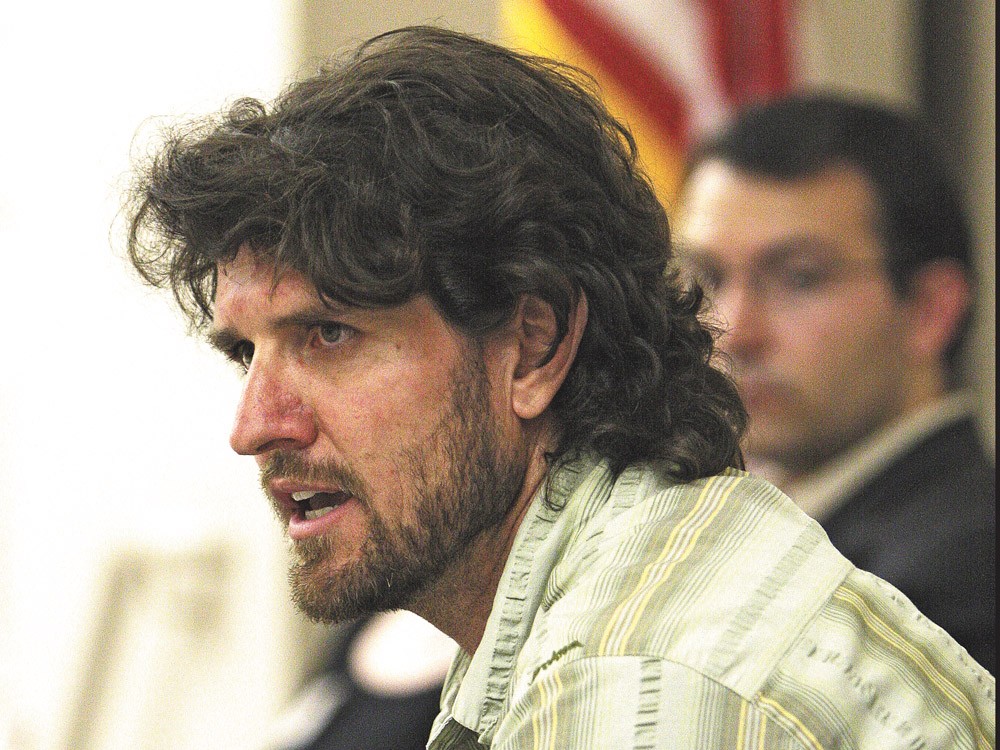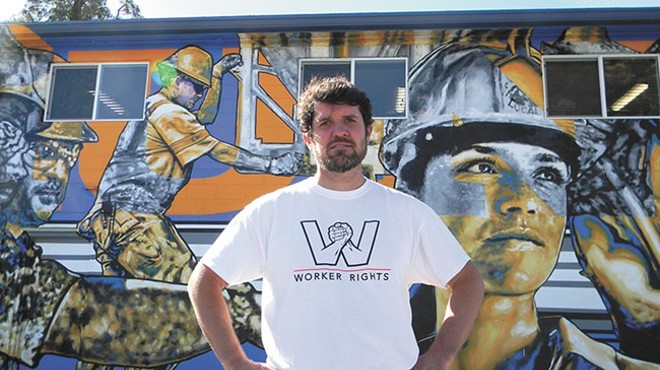
These days, Kai Huschke feels targeted. Huschke, the campaign director for Envision Spokane, can’t help but feel that the razor-thin loss of last year’s community bill of rights is a factor in a proposed law to reign in city ballot initiatives.
“There’s no state law telling Spokane you can’t have a direct filing method,” says Huschke, adding that Envision Spokane filed both its 2009 and 2011 initiatives directly with the city. “The whole claim that we somehow need to make it better for the voters is a farce.”
Initiatives, also known as ballot measures, are when citizens propose their own laws. Right now, they can file their own proposals directly with the city. Or they can work with a city attorney to find appropriate wording. In either case, if they gather enough signatures and the City Council approves the initiative, it will get on an election ballot.
But a change to the law, proposed by Councilmen Mike Fagan and Steve Salvatori, would eliminate the direct filing method. It would also require the city to make a fiscal impact statement, which critics say could be used as a campaign tool against citizens’ measures.
Fagan, standing outside council chambers on Monday, says his goal is to bring the city in line with how the state of Washington treats initiatives. And the freshman councilman says that when crafting his proposal, he did indeed have Envision Spokane in mind.
“I’m not going to lie to you — the two times that [Envision] did come out to the city, they went outside of the system,” says Fagan. “It’s a double standard.”
Among other things, Envision Spokane’s community bills of rights sought to recognize citizens’ power to make decisions regarding their own neighborhoods, as well as outline protections for workers and against corporate power.
For his part, Salvatori says he worries that a large corporation could come in and write a ballot measure, much like the state ballot measure Costco funded last year that successfully privatized state liquor sales.
“We’ve got a situation now that leaves us vulnerable to manipulation,” Salvatori says. “It would theoretically allow a Costco to write a ballot title. I wouldn’t want any special interest group to do anything that was misleading.
“I’d apply it to Envision, I’d apply it to Exxon if they came to town.”
Salvatori knows that opponents think he and Fagan are stealing citizen rights — both got an earful of protest during a recent town meeting, by several accounts — but Salvatori says the proposal isn’t a Big Brother conspiracy.
“It’s not a coercive measure in any way, shape, or form,” he says. “That’s not what I’m trying to do. I don’t see a slant in it. I honest to God don’t.”
But others think changes like the fiscal impact statement could help city administrations influence future campaigns. The attorney who looks over any ballot measure, after all, works for the mayor-appointed city attorney.
“The administration, whether it’s Democrat or Republican, is going to have a point of view,” says Council President Ben Stuckart. “That takes power away from the citizens.
“We don’t require school levies to have a fiscal impact statement for the citizen,” he says. “We just say we’re going to raise taxes.”
“Right now Measure 1 is on the ballot … there’s no fiscal impact statement out there,” Stuckart adds, referring to the April 17 Public Facilities District taxextension vote.
Tim Eyman, who has worked with Fagan at a ballot-measure group known as Voters Want More Choices, also disagrees with the proposal. “Whenever they pass these rules,” he says, “they’re creating hurdles all across the [political] spectrum.
“You have to continually remind yourself: It’s called the citizen’s initiative process,” he adds. “I really, really hope that City Council will not do this.”
According to Assistant City Attorney Mike Piccolo, the proposal would also permit the city administration to pursue legal challenges to both the ballot title and the initiative’s legal validity. The changes would eliminate public funding to individuals or groups that may file legal action against the city’s adoption of the ballot title.
If the council approves the proposed changes, says Huschke, Envision Spokane’s campaign director, it could come into play soon. He says Envision Spokane is likely to make a third attempt at passing a community bill of rights in 2013.
Rather than having to work with a city attorney, he’d prefer the city to keep its role of “referee.”
This new proposal, he says, “potentially becomes another barrier.”




















